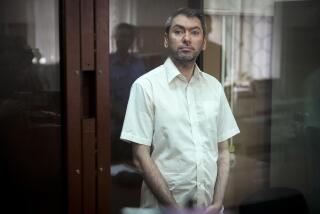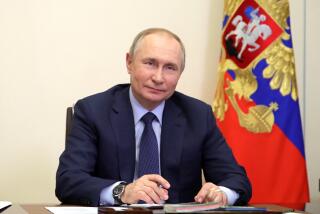Conscience of the Nation
- Share via
Andrei D. Sakharov was a brilliant and enormously courageous man whose defiant resistance to repression, unbending advocacy of intellectual freedom and rigorous moral honesty earned international acclaim.
Early in his career as a physicist he won every reward and privilege the state could bestow for contributions he made to the Soviet Union’s nuclear weapons programs.
Later in life he was persecuted and slandered by that same regime for his outspoken opposition to aggressive Soviet foreign policies and human rights violations. Sakharov died this week at the age of 68, worn out by decades of struggle and by the abuses and indignities he had been forced to endure because he would not abandon his convictions or compromise his integrity.
He lived long enough, though, to see some of the democratic reforms he had so long championed beginning to be accepted and written into law. He lived long enough to take an honored place in a Soviet Parliament where at least some of whose members had been freely elected. In 1980 Sakharov was sent into internal exile for denouncing the Soviet invasion of Afghanistan. He lived long enough to see that invasion officially regretted.
In Moscow today, mourners are calling Sakharov the conscience of the nation. Russians are given to overstatements; this is not one of them. There is simply no one else of Sakharov’s moral stature in Soviet public life. He had many admirers, more than a few of whom now have seats in the Parliament. There are also many who are ready, like him, to risk all to make Soviet society freer and more humane. But Sakharov had no peers. He was something special. For millions, he was very much a spiritual force.
It was characteristic of Sakharov and of what he stood for that his last public statement should have been in support of creating a formal political opposition to the Communist Party. This is still, in the Soviet context, an outrageous idea. But it is also, as Sakharov so well knew, a vital requisite if the Soviet Union in fact is to move toward the promised goal of real democracy.
That Sakharov was able to make such a proposal openly is a sign of how far the reform effort he fought for has progressed. That such a proposal needs to be made at all is a sign of how far the cause he so long struggled in still has to go.
More to Read
Sign up for Essential California
The most important California stories and recommendations in your inbox every morning.
You may occasionally receive promotional content from the Los Angeles Times.













